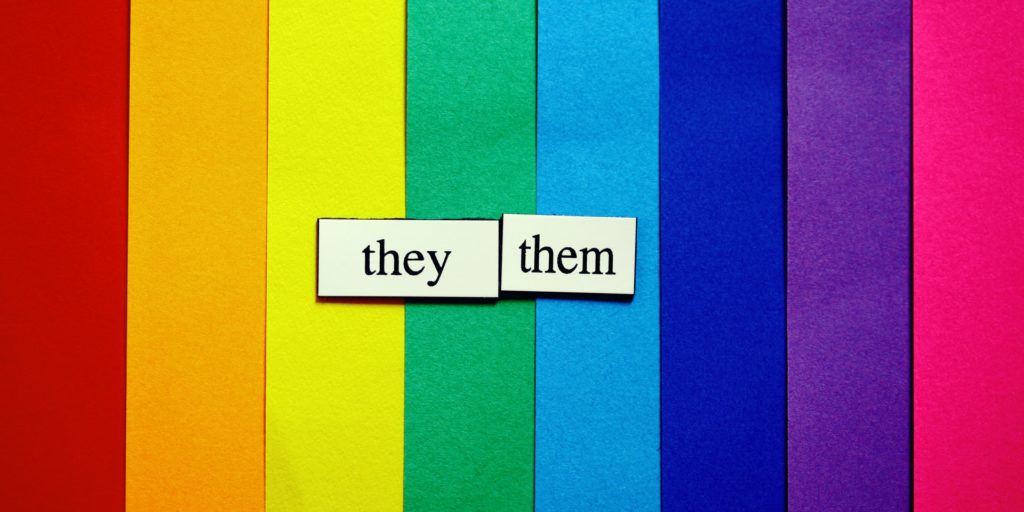- Another court ruling raises questions about termination clauses - April 29, 2024
- Important to know how background checks work, when they can be used - March 20, 2024
- Think twice before taking a marching band to work to quit a job you hate - February 15, 2024
By Tony Poland, LegalMatters Staff • Employers who fail to realize the importance of transgender identity not only do their employees a disservice but could find themselves answering to the Human Rights Tribunal of Ontario, says Toronto employment lawyer Ellen Low.
Low, principal of Ellen Low & Co., says gender expression has been a protected ground of the Ontario’s Human Rights Code (HRC) since 2012, when “gender identity” and “gender expression” were added as grounds of discrimination. However, there are some who are still “getting used to the idea of asking and referring to people with respect to their preferred pronouns.”
She points to a tribunal decision from earlier this year that awarded more than $40,000 in lost wages and damages to three restaurant workers who alleged discrimination in employment contrary to c. H.19 of the HRC. The three had asked that their employer refer to them using they/them pronouns, but the employer “persisted in mis-gendering them throughout their employment.”
Low tells LegalMattersCanada.ca the decision “is one of the first we have had that identifies and deals with trans issues.”
‘The way you refer to yourself and what pronouns you choose is important’
“It’s a significant decision,” she says. “The way in which you refer to yourself and what pronouns you choose to use is important to self-expression, gender and gender identity.
“This is one of the first decisions we have from the HRTO which deals with pronouns and the importance of correctly identifying and using people’s preferred pronouns as part of the protected grounds of human rights provisions.”
She says the use of the appropriate pronoun is not a trivial matter.
“It is important because it is a large aspect of gender expression and identity,” Low says. “It is a big deal that we get people’s pronouns correct. The HRTO has confirmed that monetary damage are due when an employer refuses to comply.”
The tribunal was told three people who worked in the kitchen of a Hamilton restaurant in 2018 identified as gender queer and/or non-binary trans and used they/them pronouns. The owner and manager was asked to use those pronouns but continued to mis-gender them.
At one point, a co-worker went to the kitchen “visibly upset” after they heard the owner make inappropriate comments about gender identity. A few days later an employee overheard the owner refer to the kitchen staff using a pejorative term “while socializing with customers over drinks.”
Remark made employees feel unsafe
The remark made the workers feel unsafe, according to the Tribunal. The owner was asked to make amends for the comment but he denied saying it.
The three eventually felt that “they had no choice but to stop working at the restaurant” after the owner’s refusal to respond to their complaint, the tribunal was told.
- Facing the challenge of mandatory workplace vaccination policies
- Federal workplace equity laws ‘a step in the right direction’
- Court decisions cause more confusion when it comes to layoffs
“There’s a significant degree of bravery with respect to those workers speaking up,” Low says. “Then, when the employer refused to change his behaviour, they filed a human rights complaint and followed through with it. I really admire these employees.”
While the decision may be unique, she says she doubts the issue of gender misidentification is uncommon.
“We can assume that it is prevalent. It is happening,” Low says. “This cannot be an isolated incident with just these particular employees and this one particular employer.”
Complaint may give others confidence to step forward
Rather than work “in a toxic work environment,” the three employees decided to take action and their fortitude may give others the confidence to come forward, she says.
“If nothing else it confirms that the human rights tribunal is going to take this issue seriously,” Low says.
Employers have a responsibility to ensure workplaces are inclusive, which means respecting people’s rights under the HRC, she says.
“They have to be cognizant of this issue and educate themselves with respect to the trans community and trans issues,” she says, “It is essential to remain open to the fact that comments or conduct that is known, or ought to be known, as unwelcome is constantly evolving.
“Referring to someone by a pronoun that they don’t represent as their own will be perceived as discriminatory,” Low adds. “If you are not sure how someone identifies it is a simple matter to ask.”
She says those facing any kind of gender discrimination in the workplace should not hesitate to call her. For those looking for further information and support on trans-issues, Low points to Egale, Trans Wellness Ontario and the Ontario Human Rights Commission.


Pingback: COVID-19 played a prominent role in the employment world in 2021 ⋆ LegalMattersCanada